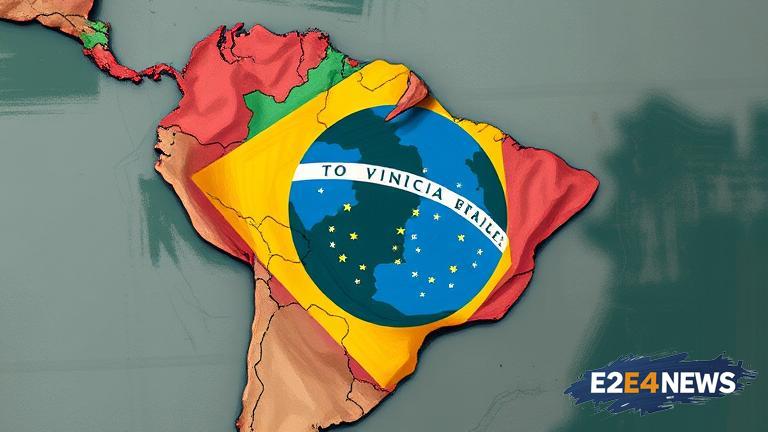In a bold move, Brazil has decided to dismantle its anti-mafia agency, opting instead to concentrate on tracing and confiscating the vast sums of money that fuel organized crime. This strategic shift is aimed at crippling the financial backbone of criminal organizations, thereby disrupting their operations and reducing their influence. By targeting the billions of dollars that underpin these groups, Brazil hopes to make a more meaningful impact on reducing crime. The decision to abolish the anti-mafia agency comes as part of a broader effort to restructure and enhance the country’s approach to combating organized crime. This new strategy acknowledges that the true power of criminal organizations lies not in their structures, but in their financial capabilities. By focusing on the money trail, Brazilian authorities aim to hit these groups where it hurts the most. The move is seen as a response to the evolving nature of organized crime, which has become increasingly sophisticated and adept at evading traditional law enforcement methods. Brazil’s experience with organized crime is complex, with various groups involved in activities ranging from drug trafficking to extortion and corruption. The financial aspect of these crimes is particularly challenging, as it often involves complex networks of money laundering and offshore accounts. The government’s decision to target these financial networks is a recognition of the need for a more nuanced and effective approach to combating organized crime. This strategy is not without its challenges, however, as it requires significant resources and international cooperation to track and seize assets that are often hidden in jurisdictions with strict banking secrecy. Despite these challenges, the potential benefits of this approach are substantial, as disrupting the financial flows of organized crime could lead to a significant reduction in criminal activity. The impact of this strategy will be closely watched, both domestically and internationally, as it represents a novel approach to dealing with the persistent problem of organized crime. Brazil’s move also underscores the importance of international cooperation in combating transnational crime, as many of the financial transactions involved in organized crime cross national borders. The success of this strategy will depend on Brazil’s ability to work effectively with other countries to share intelligence, coordinate efforts, and develop common standards for combating money laundering and asset seizure. Furthermore, the strategy’s effectiveness will be measured by its ability to reduce crime rates, improve public safety, and increase trust in law enforcement institutions. The abolition of the anti-mafia agency and the shift towards a financially focused strategy also raise questions about the role of law enforcement in combating organized crime. As Brazil moves forward with this new approach, it will be important to ensure that the rights of citizens are protected and that the strategy is implemented in a way that is transparent and accountable. The government has pledged to increase transparency and oversight, ensuring that the new strategy is subject to rigorous scrutiny and evaluation. This includes working closely with civil society organizations and the private sector to leverage their expertise and resources in the fight against organized crime. In conclusion, Brazil’s decision to revamp its anti-crime strategy by targeting the financial underpinnings of organized crime represents a significant shift in approach. While challenges lie ahead, the potential benefits of this strategy make it an important development in the global fight against organized crime. As the situation unfolds, it will be crucial to monitor the strategy’s implementation, assess its effectiveness, and adjust course as necessary to ensure that the desired outcomes are achieved.
